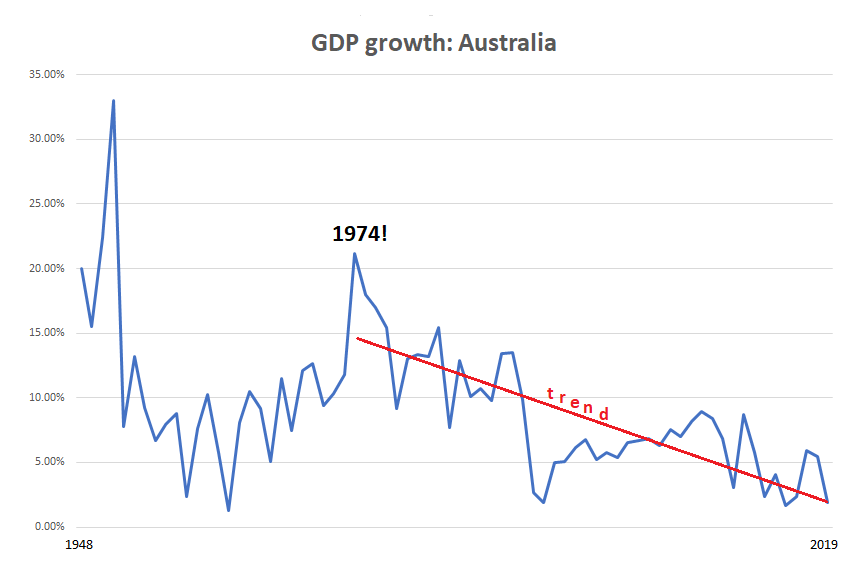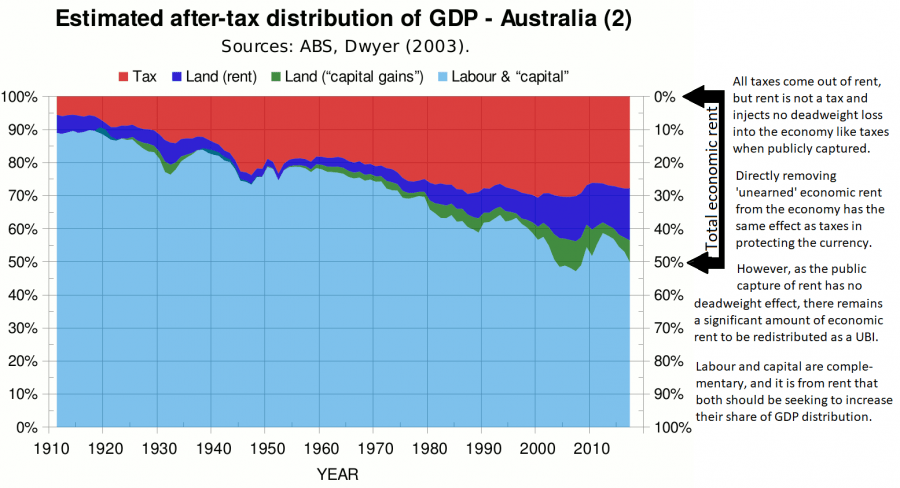Sending production overseas to save on wages costs has come back to haunt the west. Offshoring to China and other Asian countries has proven misconceived, insofar as wage levels purported to be generous still found workers struggling with excessive levels of debt at home. So clearly, there were also other reasons that had driven business profits down. Gross domestic product growth had actually declined since 1974, and it wasn’t only ‘high wages’ that had been responsible. Something else was afoot.

Banking, the big tech giants, and a handful of other monopolies had been making extraordinary profits—we may say unearned ‘super-profits’—and this played a significant, if seemingly invisible, part in sending small businesses and workers into financial difficulty, and some businesses overseas, long before Covid-19 arrived to compound the damage.
We need to know about super-profits, or ‘rent-seeking’ if we’re to see how monopolies had succeeded at great cost to workers and those businesses unable to secure unearned income to themselves. A High Tory media has managed to keep the lid on this rent-seeking rort that has needed exposure to daylight. We’re certainly not short of examples of outlandish scams these days, but it’s the ‘money-for-nothing’ rent-seeking at the commanding heights of the economy that needs to be remedied. The coronavirus offers a hiatus in which to undertake essential reform.
Although tax regimes designed in the interests of rent-seekers can be seen to be the root cause of economic disarray and growing poverty, the left of politics is now fully on board and comfortable with the arch-right in taxing the incomes of working people and small business. Political consensus on the point is sold on the pretext that federal taxes ‘fund’ necessary social services, such as schools and hospitals, when there is no necessary connection between taxation and federal government spending. The government spends before it taxes money back out of the economy; but it has become difficult to challenge the myth that we need more taxes because they constitute ‘a pot of revenue’. Yes, a certain amount of money needs to be taxed away in order to deal with the threat of inflation and to maintain the value of the currency, but there are far superior ways to fulfil this need than to fine workers and businesses. There are unearned incomes to be taxed away.
Those who comprehend the ills of the unequal private capture of publicly created land rent understand that it’s not coincidental that neoclassical economics seeks to confound the classical definition of economic rent. Whereas it relates only to the surplus income from land and natural resources, neoclassical economics endeavours to conflate it with what they call surpluses arising to labour and capital. (Mason Gaffney’s “Neoclassical Economics as a Stratagem Against Henry George” elaborates on the point.)
The following unique chart explains how prominent companies and individuals are able to expropriate unearned land income–‘economic rent’–the publicly generated surplus in the production process owed therefore equally to everybody.
Dr Gavin Putland reminds us that all taxes come out of rent (ATCOR) and that excess burden also comes out of rent (EBCOR); therefore, we can see Australian economic rent (red, dark blue, green) has achieved 50% of GDP. Despite being the economy’s surplus, much of it is expropriated by banking and other monopoly rent-seekers, instead of being distributed equally as a universal basic income (UBI). Were this done, the share to labour and capital (pale blue) would increase well beyond the residual 50%, thus resolving industrial relations between workers and businesses who involve themselves in a madcap fight over the 50% of the economy that rent-seekers so generously leave to them.
As the taxing of productivity inserts deadweight losses of some twice the amount levied, we need tax away land rents to have the same effect achieved by the mindless taxing of productivity. Capital gains in land (green) would also be reduced were annual ground rents (dark blue) taxed away instead of taxing labour and capital (red).

Public capture of currently privatised land rent would vastly reduce the price of land and the cost of mortgages. In this scenario, banks will have solvency issues, but it’s not as though they’re not experiencing them right now, as a result of having offered easy debt against impossibly inflated land prices. Governments continue being remiss in propping up land prices to protect banks. This, too, has come at a great cost to the wider community.
There’s an economy of abundance out there once economic rents are taxed away.
A UBI is the nub of the argument, however. Everybody from the age of 16 could receive a living wage basic income to distribute the economic rent equally, instead of it being largely expropriated by the 0.1%. In “Capital in the Twenty-First Century”, Thomas Piketty was alert to the problem of rent-seeking and growing inequality, but he failed to provide a workable solution.
In a thus remedied economy, quite apart from a UBI offering a fair and efficient public distribution of rent, businesses would not have to pay the same wages. They would only have to offer some lesser amount in addition to the UBI in order to attract employees. Of course, people could choose to use the UBI as a base upon which to establish and pursue their own interests. The latter seems to offend those who’d settle for a ‘job guarantee’.